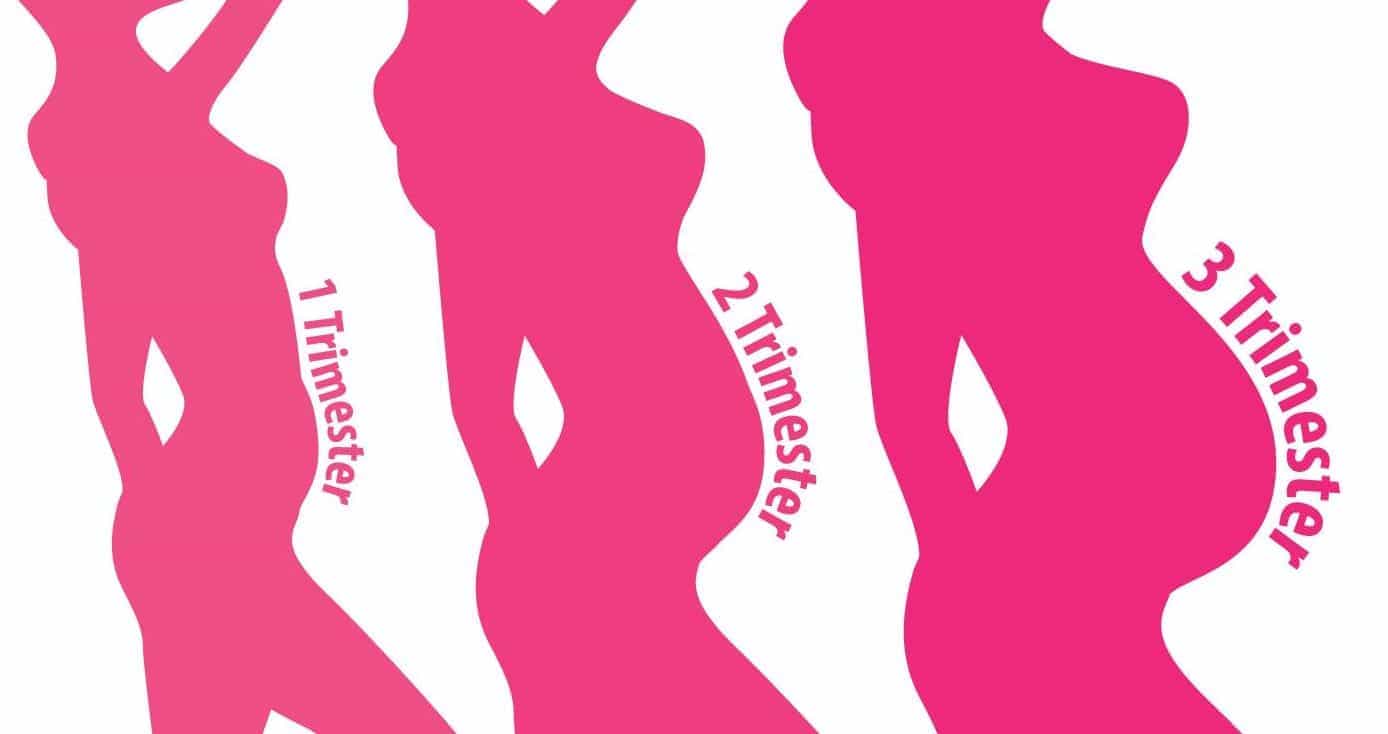There are breast changes during pregnancy you should expect almost from day one. Blame the hormones. As hormone levels increase, so does blood flow and fluid retention causing your breasts to feel swollen, sore and sensitive to touch. In fact, breast tenderness can be one of the early signs of pregnancy. But this is good because these breast changes are preparing for the arrival of your baby.
Breast Changes During Early Pregnancy
There are a number of breasts changes during pregnancy that you should expect:
- Growth and enlargement – Around weeks 6-8, your breasts will get bigger and continue to grow throughout your pregnancy. Expect to go up a bra cup size or two. Your breasts may feel itchy as the skin stretches and you may develop stretch marks.
- Tenderness and hypersensitivity.
- Darkening of nipples and areolas (the skin around your nipples) due to hormones that affect the pigmentation of the skin.
- Darkened veins along with your breasts (due to the increased blood supply to your breasts).
- Around month three, your breasts may start leaking a yellowish, thick substance known as colostrum. Some women may leak earlier, some never at all.
- Nipples stick out more, and the areolas and nipples will grow larger.
- You may also notice little bumps on the areolas. These are small oil-producing glands called Montgomery’s tubercles.
How can I ease breast pain and discomfort during pregnancy?
Here are some helpful suggestions you can follow to make some of these changes more comfortable and easier to manage.
Growth and enlargement: Buying a good supportive bra can help you feel more comfortable as your breasts grow. Consult a bra-fit expert at a large department store, maternity or specialty shop. If your breast size increases greatly, you may want to sleep in a cotton sports bra at night.
What to consider in a bra:
- Maternity and nursing bras usually have extra hooks and don’t have underwire cups. They’re also made for extra support and comfort. When you start breastfeeding, you’ll want to switch to a nursing bra for easier access.
- Sleep bras help provide support for larger breasts. Look for wide straps and a soft cotton lining. Maternity stores often sell these soft, nonrestrictive cotton bras too.
- Sports bra. When you exercise during pregnancy, it’s especially important to wear a supportive bra that fits properly because your breasts are heavier. A good sports bra can provide the additional support you need and minimize discomfort.
Sensitive and tender breasts: Hormones in your body are preparing your breasts for lactation. The milk ducts are growing and being stretched as they fill with milk early in pregnancy. All this causes your breasts to be more sensitive, particularly your nipples. This may cause you discomfort.
Colostrum: Colostrum, or pre-milk, is a sweet and watery fluid that is easy to digest. During your second trimester, your breasts will begin to produce colostrum. Colostrum appears thick and yellow at first, and as the birth draws near, it becomes pale and almost colorless. Colostrum will provide your baby with his first few meals before your milk comes in.
A discharge may occur at any time, when your breasts are massaged, or when sexually stimulated. There is no need to be alarmed when this happens, and there is no need to worry if it does not happen.
Women who do not experience discharge in pregnancy still produce milk for their baby.
What about breast cancer?
Continuing with self-breast exams during pregnancy is important. Unfortunately, during pregnancy, it is more difficult to accomplish because of all the changes your breasts are going through. Your breasts are growing in size, are tender, and sometimes may even be lumpy. It is still important for you to examine your breasts during pregnancy every 4-5 weeks.
Very common lumps found among women during pregnancy are clogged milk ducts. These are red, tender-to-the-touch, hard lumps in your breasts. Warm compresses (running warm water over your breasts in the shower or applying a warm washcloth) and massages will probably clear the duct in a few days. If you are unsure of any new lump, tell your doctor on your next visit.
Keep in mind breast cancer is rare among women younger than 35. If you are planning on having a baby and are over the age of 35, you may want to consider asking your doctor about a mammogram before you get pregnant.
Want to Know More?
Compiled using information from the following sources:
1. Williams Obstetrics Twenty-Second Ed. Cunningham, F. Gary, et al, Ch. 30 and 57.
2. Planning Your Pregnancy and Birth Third Ed. The American College of Obstetricians and Gynecologists, Ch. 7.



